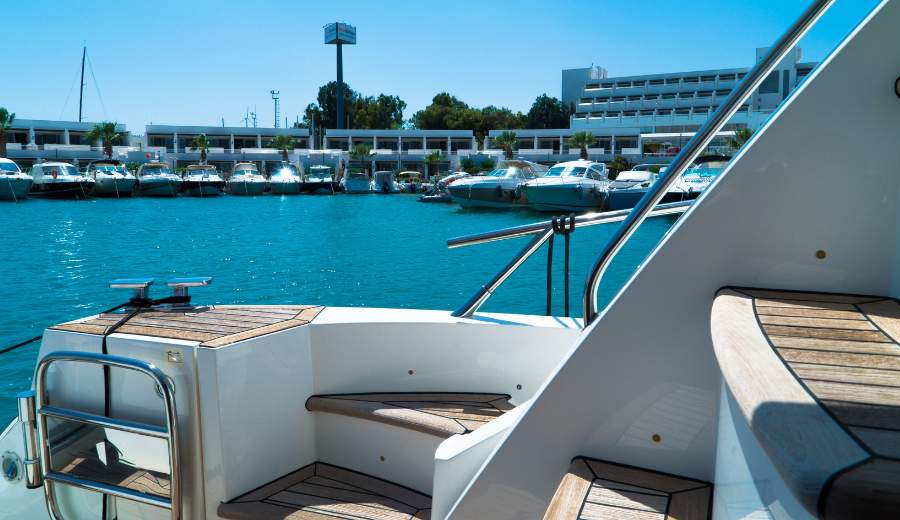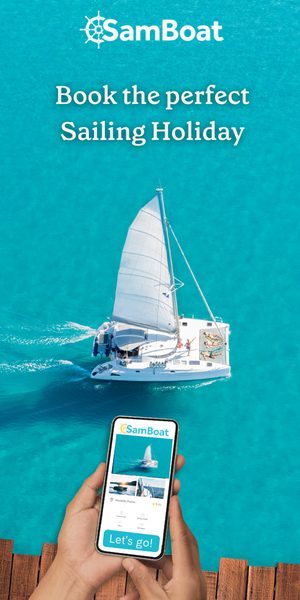Ah, the open sea—a boundless blue expanse that stretches as far as the eye can behold. It is a realm teeming with life, both seen and unseen, where giants of the ocean cohabit with the smallest of plankton. And while whales, dolphins, and the elusive giant squid have been the quintessential stars of this aquatic tapestry, there exists another, perhaps less-heralded, actor—charter yachts.
A charter yacht is no mere vessel. It is an intricate concoction of engineering, artistry, and desire. Every beam, every plank, and indeed, every knot tied by a seasoned sailor manifests not just as functional elements but as integral aspects of a much larger, deeply complex organism. But do these floating paradises yield the rewards their owners seek? Let us embark on an odyssey into the financial and ecological framework that envelops charter yacht ownership.
The Nutrients of Revenue

Like the intricate roots of the mangrove tree, which intertwine and intermingle to create a stable foundation for an entire ecosystem, the revenue model of charter yacht ownership is a labyrinthine structure. Various revenue streams pool together to support this colossal undertaking.
Charter Fees
The most obvious, and indeed most appealing, source of revenue comes from charter fees. Those privileged enough to engage in this indulgence often shell out sums that would make the rare blue diamond appear pedestrian in comparison. While smaller vessels can earn their keep with modest sums, the super-yachts—those floating palaces replete with helipads, underwater observatories, and luxurious spas—can command fees reaching well into the hundreds of thousands for a single week of oceanic escapade.
Ancillary Income
It's essential not to overlook the auxiliary channels of income, reminiscent of the clownfish and anemone's symbiotic relationship. Crewed charter yachts, for instance, often offer additional activities like scuba diving, fine dining, or guided tours, each accompanied by their own distinct price tags.
The Reef of Expenditure
However, life in the aquatic tapestry is not all serene. Just as a predator lurks behind the camouflage of colorful coral, so too does the cost of maintenance and operation haunt the dreams of yacht owners.
Operational Expenses
Fuel alone could dry up the reserves of a small island nation, and then there are the docking fees, each commanding its own king's ransom, especially in coveted locales like Monaco or St. Tropez. Crew salaries, maintenance, insurance, and an array of other sundry expenses contribute to an undertow of outflow that can easily eclipse the inflow if not managed with the acumen of a veteran sea captain.
Depreciation
It's critical to bear in mind the depreciation of the yacht itself—an inevitability as assured as the tides. While some assets like fine wine or classic art appreciate over time, the value of a yacht is more akin to that of the iceberg, slowly eroding away beneath the surface, imperceptible yet inexorable.
The Delicate Balance

Like a coral reef teetering on the brink, the financial equilibrium of charter yacht ownership is a fine balance between the lucrative streams of income and the voracious appetite of expenses. Profit, then, is not a guaranteed outcome but rather a potential result of an intricate dance between various forces, some controllable and others at the mercy of the fates and currents of the sea.
Investment or Indulgence?
So, do charter yacht owners make money? Some certainly do and do so resplendently. However, it's prudent to recognize that a charter yacht is less an investment in the traditional sense and more an opulent indulgence that might—under the right confluence of circumstances—offset its own gargantuan costs. It is, in essence, a gamble on the high seas, a roll of the dice that could either plunge one into the abyss or elevate them onto the crest of a wave.
In conclusion, owning a charter yacht is not merely a transaction; it's a commitment to becoming a steward of a minute yet fascinating part of the oceanic ecosystem—a venture replete with risks and rewards, harmonies and discord, and perhaps most importantly, an everlasting promise of adventure. Ah, the tantalizing allure of the sea—ever fickle, yet eternally captivating.
FAQ - Unveiling the Mysteries Beneath the Surface
Ah, as we meander through this intricate landscape of financial tides and aquatic allegories, we find ourselves beckoned by the curiosity that dwells in the deepest abyss of the human mind. Just as explorers in bygone eras navigated through uncharted waters guided by the stars, so too shall we embark upon answering some of the most frequently pondered questions. We aim to illuminate the dark corners of ambiguity that surround the universe of charter yacht ownership.
What Does It Take to Own a Charter Yacht?
Ah, the ownership of such a vessel is akin to adopting a mighty blue whale—it demands substantial investment, not only in monetary terms but also in the currency of dedication and time. Beyond the initial cost of the yacht itself, potential owners must be prepared to grapple with ongoing expenditures such as maintenance, staffing, and insurance, which collectively form the coral reef around which the entire ecosystem orbits.
Is Owning a Charter Yacht a Full-time Job?
Though these glorious vessels sail under their own power, steering them through the labyrinthine corridors of ownership is a feat that demands a constant vigil. Whether you delegate these duties to a trusted captain—a manager, so to speak—or tackle them yourself, the specter of responsibility is one that never fades beyond the horizon. It's a role that may not consume every waking hour but will assuredly occupy a substantial share of your cognitive seascape.
Can One Venture Into Partial Ownership?
Indeed, much like a school of fish banding together for mutual benefit, there exists the option for fractional ownership. By sharing the burdens and the boons with others, you venture into an intricate dance of cooperation and compromise. While this may alleviate the individual financial load, remember that in sharing the helm, you relinquish a measure of control over your seafaring destiny.
What Is the Best Way to Maximize Profit?
Profit, that elusive anglerfish lurking in the shadows, can be coaxed into the light through a well-calibrated blend of prudent management and strategic planning. The most fruitful approach often involves diversifying the revenue streams—adding a dash of adventure tourism here, a sprinkle of luxury dining there—to create a cocktail as multifaceted as the ocean itself.
What Happens During the Off-Season?
Ah, the off-season is to the charter yacht what winter is to the deciduous forest—a period of dormancy, yet one teeming with behind-the-scenes activity. It's a time for refurbishment, for strategy recalibration, and for the sun to set on one chapter and rise on another. Though the cash flow ebbs, the heartbeat of opportunity never ceases to pulsate.
We hope this expedition into the ocean of questions has granted you not just answers but a newfound appreciation for the dynamic interplay of elements that define the world of charter yacht ownership. It is an undertaking not for the faint-hearted but for those who, like the explorers of yore, yearn to embrace the unfathomable mysteries of the deep blue sea. Ah, for such souls, the horizon is not a boundary but an invitation.


